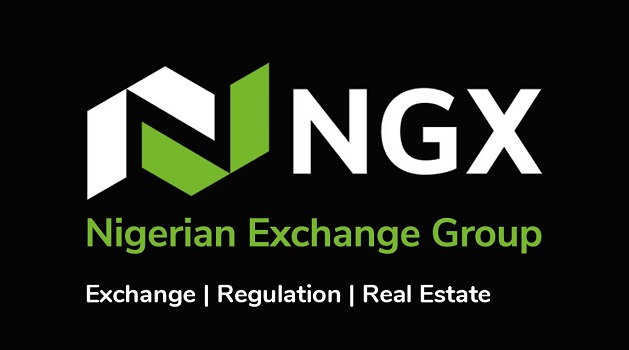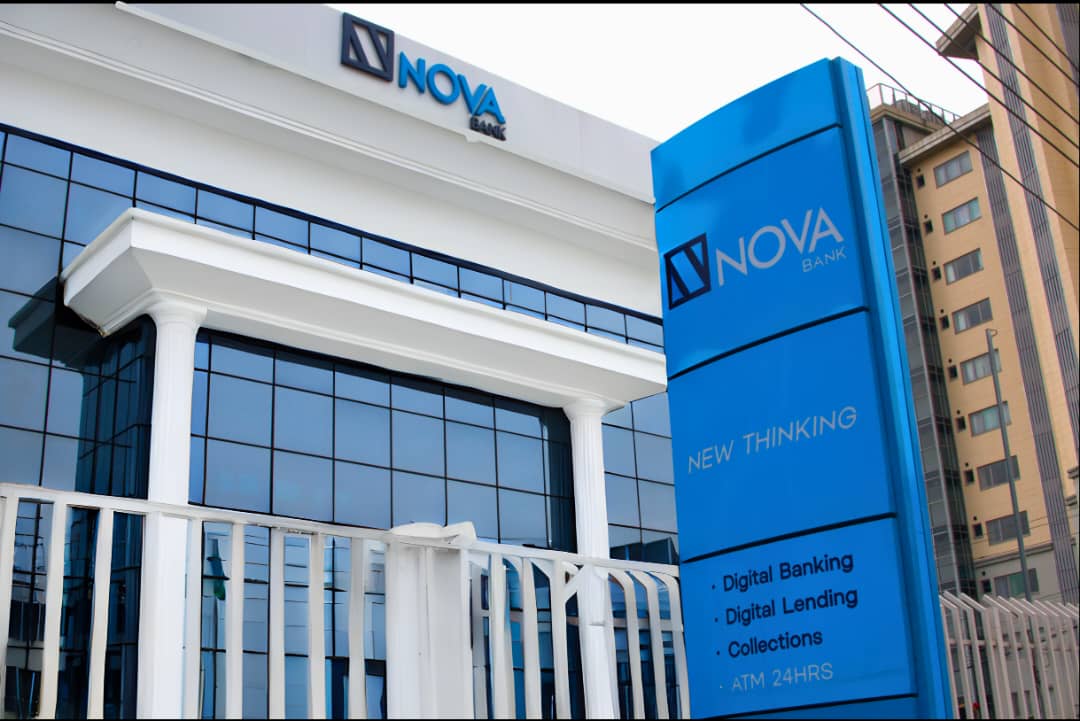E-Financial
NGX Fines 9 Firms N76.8m for Late Filing of Annual Reports

Nigerian Exchange Limited (NGX) has imposed a N76.8 million fine on nine quoted companies for failure to file their audited financial statements after the regulatory due date, according to Nairametrics.

The report indicated that the companies were sanctioned for their inability to meet the regulatory requirements for the year-end 2022 and 2023 financials.
This is a requirement of the X-Compliance Report, a transparency initiative of NGX Regulation Limited (NGX RegCo) designed to maintain market integrity and protect investors by providing compliance related information on all listed companies.
Companies that are listed on Nigerian Exchange Limited (NGX) are required to adhere to high disclosure standards which are prescribed in the Rulebook of NGX, 2015 (Issuers’ Rules), and other Rules of NGX, from time to time.
NGX has regularly sanctioned companies that fail to comply with this requirement.
The companies fines by NGX include; African Alliance Insurance Plc, VFD Group Plc, FBN Holdings Plc, Sterling Financial Holdings Company Plc, UPDC Plc, ABC Transport Plc, Presco Plc, eTranzact International Plc, and NCR (Nigeria) Plc.
Further checks showed African Alliance Insurance Plc with N48.6 million fine for inability to file the 2022 annual financial statement when required.
Others that failed to submit their 2023 annual financials include VFD Group Plc, N5.6 million, FBN Holdings Plc N5.4 million, Sterling Financial Holdings Company Plc, N6 million, UPDC Plc, 3.9 million, ABC Transport Plc, N3.2 million, Presco Plc, N3.2 million, eTranzact International Plc, N700,000.00, and NCR (Nigeria) Plc with N200,000.00 fine accounting for a cumulative fine of N76.8 million.
Learn more
Pastor Adegoke Samson, a shareholder in a chat with Daily Trust said while sanction may be good, it is necessary for the NGX to also warn them before imposing the fine.
According to him, the fine would affect the shareholders who might bear the brunt of the fine on the companies.
He said the NGX is also looking for a way to generate revenue by its regulatory sanctions which come with heavy fines.
“They don’t know that if there is no company, the NGX can’t exist. That is why some companies delist because of the regulatory sanctions. I want the NGX to always give warnings instead of fine, fine and fine so that companies would not run away from the market,” he said.
E-Financial
SEC DG Warns as Crypto Adoption Rises in West Africa Without Proper Regulations

Dr. Emomotimi Agama, Director-General of the Securities and Exchange Commission (SEC) Nigeria, has said that West Africa is fast emerging as a global epicentre for virtual asset adoption, propelled by a young, tech-savvy population and macroeconomic instability.

Speaking at the West Africa Compliance Summit organised by the Inter-Governmental Action Group against Money Laundering in West Africa (GIABA) in Praia, Cape Verde, Dr. Agama warned that while the region’s embrace of digital currencies is accelerating, the absence of coordinated regulation leaves it vulnerable to financial crimes and illicit capital flows.
“With over 60 percent of West Africa’s population under the age of 25 and mobile-first fintech platforms thriving, the region has become a global hotspot for virtual asset adoption,” he said. “But we must act decisively. Regulation is not optional, it is an imperative.”
The summit, themed “Adapting and Thriving in a Complex and Evolving Compliance Landscape,” brought together financial regulators, compliance professionals, and security experts to explore the challenges posed by the rapid rise of virtual assets and decentralised finance (DeFi).
Dr. Agama disclosed that crypto transactions in Nigeria alone surpassed $56 billion in 2024, with citizens increasingly turning to stablecoins such as USDT and USDC to hedge against volatile local currencies. He highlighted the growing trend of “crypto-dollarisation,” noting that young professionals now demand salaries in stablecoins, while businesses are adopting platforms like Binance Pay for cross-border transactions.
“The naira’s depreciation, Ghana’s cedi weakness, and persistent forex shortages have fueled this shift,” he explained. “Traditional remittance channels charge up to 10 percent in fees, while cryptocurrencies offer faster and cheaper alternatives. Over $20 billion in remittances flowed into West Africa last year through crypto channels.”
However, he also cautioned that the same innovations driving financial efficiency are increasingly being exploited by fraudsters and criminal actors. He cited GIABA’s report of $2.1 billion in suspicious crypto-related transactions across West Africa in 2024 alone, including the use of privacy coins by terror financiers to evade detection.
“Unregulated exchanges, artificial market crashes, DeFi ‘rug pulls,’ and Ponzi schemes have wiped out billions in investor funds,” he said. “The recent collapse of the CBEX Ponzi platform is just one of many such incidents. Strong regulation and regional coordination are the only path forward.”
Dr. Agama pointed to Nigeria’s recent legislative progress, especially the enactment of the Investment and Securities Act 2025, which formally classifies virtual assets—including cryptocurrencies, stablecoins, utility tokens, and NFTs—as securities under Section 355(4) and Part I of the Second Schedule.
“Under the new law, all exchanges, wallets, and DeFi platforms must be licensed by the SEC,” he stated. “We’ve also established a Fintech and Innovation Department to facilitate ongoing dialogue with industry stakeholders and adapt our regulations to emerging realities.”
He called on West African governments to harmonise regulatory frameworks and strengthen intelligence-sharing, proposing a Unified Virtual Asset Service Provider (VASP) Licensing System under the ECOWAS framework.
“A crypto trader banned in Nigeria should not find safe haven in Ghana,” he asserted. “Financial crime knows no borders. Our collective future depends on our ability to secure this emerging financial frontier.”
E-Financial
NOVA Bank Deepens Market Presence with New Branches and Regional Focus

NOVA Bank has announced its intention of a strategic shift in its operating license from a national to a regional authorisation, a move, which according to the Bank is aimed at optimising operational efficiency and deepening its impact within key markets.

The management of the Bank noted that the repositioning aligns with the Bank’s long-term vision to consolidate its strengths, streamline its services, and deploy capital more effectively within targeted regions, without compromising its commitment to innovation, customer satisfaction, and sustainable growth.
To this effect, NOVA has applied to the CBN to recategorize its operating license from a National to a Regional Commercial Banking license.
According to the Bank, NOVA maintains a strong financial position, underpinned by robust capital adequacy, liquidity ratios, and a consistent growth trajectory.
NOVA’s Acting Managing Director/Chief Executive Officer, Mrs. Chinwe Iloghalu, explained that following the Central Bank of Nigeria’s (CBN) revised recapitalisation directive in March 2024, NOVA reviewed its growth trajectory and capital utilisation strategy.
“Given the Bank’s current stage of growth, we have chosen the prudent route to optimise what we need, grow efficiently, and scale sustainably. This is a major strategic positioning that will ensure continued efficiency in the deployment of assets and resources,” she said
Mrs. Iloghalu further stated “Indeed, our shareholders have shown strong commitment to ensuring full capitalisation through rights issue by injection of additional 24 billion before end of 2025 to exceed the prescribed capital for regional Banks well ahead of the 2026 CBN deadline”.
In a further affirmation of its strength and stability, Global Credit Rating (GCR) recently reaffirmed NOVA Bank’s BBB rating with a Stable Outlook, citing the Bank’s healthy liquidity profile, improving earnings, and sound asset quality.
The Bank’s audited 2024 financials validate the effectiveness of its growth strategy, recording over 200% year-on-year growth in profit before tax (PBT), alongside improvements across all key financial indicators.
NOVA is set to launch three new branches in the coming weeks, including Owerri, Port Harcourt, and Abuja, to enhance physical access and customer service, while strengthening its digital banking infrastructure to ensure customers continue to enjoy secure, seamless, and convenient banking experiences, anywhere, anytime.
The Chairman of the Board, Mr. Phillips Oduoza, noted that NOVA remains committed to its vision and is thankful for the continued trust of its customers, shareholders, and regulators.
“Every decision we make is deliberate and strategic, guided by sound governance and market insight. Transitioning to a regional license is a recalibration, giving us room to grow optimally, build capacity, and position ourselves for a full national rollout in the next 36 months.” Said Oduoza
E-Financial
West Africa Emerging as Crypto Adoption Epicentre- SEC Boss

West Africa is fast emerging as a global epicentre for virtual asset adoption, propelled by a young, tech-savvy population and macroeconomic instability, according to Dr. Emomotimi Agama, director-general, Securities and Exchange Commission (SEC) Nigeria.

Dr. Emomotimi Agama, DG, SEC
Speaking at the West Africa Compliance Summit organised by the Inter-Governmental Action Group against Money Laundering in West Africa (GIABA) in Praia, Cape Verde, Dr. Agama warned that while the region’s embrace of digital currencies is accelerating, the absence of coordinated regulation leaves it vulnerable to financial crimes and illicit capital flows.
“With over 60 percent of West Africa’s population under the age of 25 and mobile-first fintech platforms thriving, the region has become a global hotspot for virtual asset adoption,” he said. “But we must act decisively. Regulation is not optional, it is an imperative.”
The summit, themed “Adapting and Thriving in a Complex and Evolving Compliance Landscape,” brought together financial regulators, compliance professionals, and security experts to explore the challenges posed by the rapid rise of virtual assets and decentralised finance (DeFi).
Dr. Agama disclosed that crypto transactions in Nigeria alone surpassed $56 billion in 2024, with citizens increasingly turning to stablecoins such as USDT and USDC to hedge against volatile local currencies.
He highlighted the growing trend of “crypto-dollarisation,” noting that young professionals now demand salaries in stablecoins, while businesses are adopting platforms like Binance Pay for cross-border transactions.
“The naira’s depreciation, Ghana’s cedi weakness, and persistent forex shortages have fueled this shift,” he explained.
“Traditional remittance channels charge up to 10 percent in fees, while cryptocurrencies offer faster and cheaper alternatives. Over $20 billion in remittances flowed into West Africa last year through crypto channels.”
However, he also cautioned that the same innovations driving financial efficiency are increasingly being exploited by fraudsters and criminal actors.
He cited GIABA’s report of $2.1 billion in suspicious crypto-related transactions across West Africa in 2024 alone, including the use of privacy coins by terror financiers to evade detection.
“Unregulated exchanges, artificial market crashes, DeFi ‘rug pulls,’ and Ponzi schemes have wiped out billions in investor funds,” he said. “The recent collapse of the CBEX Ponzi platform is just one of many such incidents. Strong regulation and regional coordination are the only path forward.”
Dr. Agama pointed to Nigeria’s recent legislative progress, especially the enactment of the Investment and Securities Act 2025, which formally classifies virtual assets—including cryptocurrencies, stablecoins, utility tokens, and NFTs—as securities under Section 355(4) and Part I of the Second Schedule.
“Under the new law, all exchanges, wallets, and DeFi platforms must be licensed by the SEC,” he stated.
“We’ve also established a Fintech and Innovation Department to facilitate ongoing dialogue with industry stakeholders and adapt our regulations to emerging realities.”
He called on West African governments to harmonise regulatory frameworks and strengthen intelligence-sharing, proposing a Unified Virtual Asset Service Provider (VASP) Licensing System under the ECOWAS framework.
“A crypto trader banned in Nigeria should not find safe haven in Ghana,” he asserted.
“Financial crime knows no borders. Our collective future depends on our ability to secure this emerging financial frontier.”

 General News3 days ago
General News3 days agoNOA Warns of Fake N1000 Notes in Circulation, How to Identify Them

 Telecom3 days ago
Telecom3 days agoMTN @ First-ever CED, Pledges to Address Subscribers’ Concerns

 E-Financial3 days ago
E-Financial3 days agoWest Africa Emerging as Crypto Adoption Epicentre- SEC Boss

 Telecom2 days ago
Telecom2 days agoNCC to Sanction Operators over Regulatory Violations

 General News2 days ago
General News2 days agoCustoms Ditches Fast Track Scheme for Authorised Economic Operator

 General News3 days ago
General News3 days agoNCC, IHS Towers Lead Others To NITRA-ALTON CNII & Telecom Sustainability Conference 2025

 Telecom3 days ago
Telecom3 days agoAirtel Nigeria Raises Infrastructure Spending to $39m

 Broadcasting3 days ago
Broadcasting3 days agoGovernment of Ghana Slams MultiChoice, Insists on DStv Price Cut

























